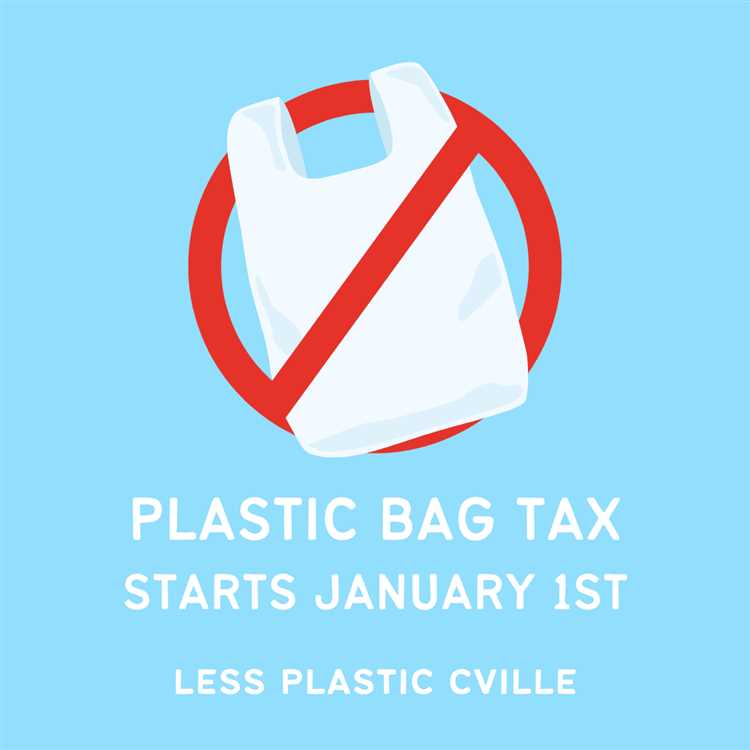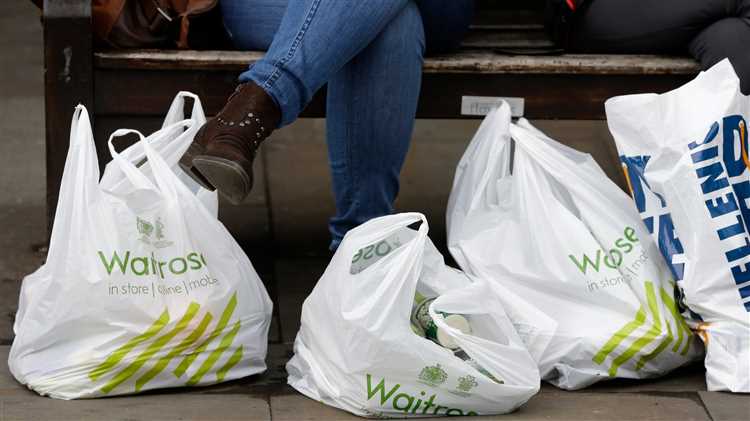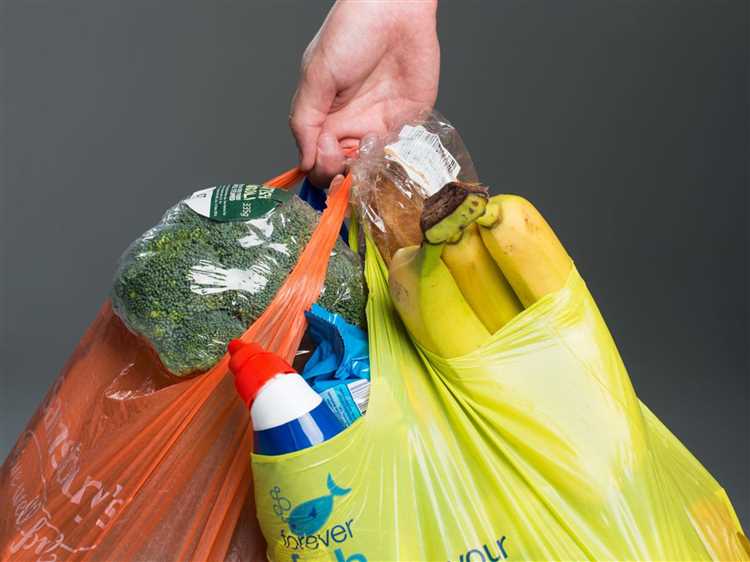In recent years, there has been growing concern about the environmental impact of plastic bags. These single-use bags are made from non-biodegradable materials that can take hundreds of years to decompose, leading to immense amounts of waste that pollute our land, waterways, and wildlife. To address this issue, governments around the world have implemented various measures, including the taxation of plastic bags.
The main purpose of taxing plastic bags is to reduce their usage and encourage individuals to adopt more sustainable alternatives. By making plastic bags more expensive, governments hope to incentivize consumers to bring their own reusable bags when they go shopping. This not only helps reduce the demand for plastic bags but also promotes a shift towards more eco-friendly behaviors.
Furthermore, the revenue generated from these taxes can be used to fund environmental initiatives and programs. Governments can invest in recycling facilities, awareness campaigns, and research to develop new sustainable materials. Taxing plastic bags also has economic benefits, as it creates job opportunities in the recycling industry and reduces the costs associated with waste management.
It is important to note that taxing plastic bags is just one part of a larger strategy to address the environmental impact of single-use plastics. In addition to taxation, governments can also implement bans or restrictions on plastic bags, encourage the use of biodegradable alternatives, and promote recycling. By taking a comprehensive approach, we can make significant progress in reducing plastic waste and protecting our planet for future generations.
- Plastic Bags: A Widespread Environmental Concern
- The Impact on Marine Life
- Affecting Land and Wildlife
- Government Taxation: An Effective Solution?
- The Environmental Impact
- The Need for Action
- The effectiveness of Plastic Bag Taxes
- Q&A:
- Why does the government tax plastic bags?
- What is the environmental impact of plastic bags?
- How does the tax on plastic bags work?
- Are there any exemptions to the plastic bag tax?
Plastic Bags: A Widespread Environmental Concern
Plastic bags have become a significant environmental concern globally due to their widespread use and detrimental impact on the environment. These single-use bags are made from non-biodegradable materials such as polyethylene, which means they can take hundreds of years to decompose.
The production of plastic bags also takes a toll on the environment. The extraction and refinement of the materials used to make these bags contribute to air and water pollution, as well as the release of greenhouse gases. Additionally, the manufacturing process consumes energy and natural resources, further contributing to environmental degradation.
The Impact on Marine Life
One of the most alarming consequences of plastic bag pollution is its impact on marine life. When plastic bags end up in rivers, lakes, and oceans, they pose a serious threat to marine animals. These animals can mistake the bags for food and consume them, leading to intestinal blockages and ultimately death. The ingestion of plastic bags has been documented in numerous marine species, including sea turtles, seals, and whales.
Furthermore, plastic bags can entangle marine animals, inhibiting their ability to swim and find food. Sea birds, for example, often become entangled in plastic bags, which can lead to drowning or restrict their ability to fly and hunt. Overall, the presence of plastic bags in marine environments has severe and long-lasting consequences for the delicate ecosystems and biodiversity.
Affecting Land and Wildlife
Plastic bags not only affect marine environments but also have detrimental effects on land and wildlife. When not disposed of properly, plastic bags can end up in landfills, where they can take up valuable space and contribute to leachate, a harmful liquid that can contaminate soil and water. Inadequately managed landfills may also result in the dispersal of plastic bags into nearby ecosystems, posing a threat to terrestrial wildlife.
Wildlife, such as birds and small mammals, can mistake plastic bags for food or use them in their nests, leading to entanglement and suffocation. The presence of plastic bags in natural habitats disrupts ecosystems and can have cascading effects on the food chain.
In conclusion, plastic bags pose a significant threat to the environment, both on land and in marine ecosystems. The widespread use of these bags and their non-biodegradable nature make them a persistent source of pollution. Taxation on plastic bags is one strategy that governments are implementing to discourage their use and encourage the adoption of more environmentally friendly alternatives. By taxing plastic bags, governments aim to reduce their consumption, promote recycling, and ultimately mitigate the environmental impact associated with their production and disposal.
Government Taxation: An Effective Solution?

Plastic bags have become a global environmental issue, with their negative impact on our planet becoming increasingly apparent. In an effort to encourage people to reduce their use of plastic bags and switch to more sustainable alternatives, many governments have implemented taxation policies on plastic bags. But is government taxation an effective solution to this problem?
One of the main arguments for government taxation on plastic bags is that it creates a financial disincentive for consumers to use them. By increasing the price of plastic bags through taxation, governments hope to shift consumer behavior towards more eco-friendly options, such as reusable bags. Studies have shown that when the price of plastic bags is increased, there is a decrease in their usage, with people opting for alternative options. This suggests that taxation can indeed be an effective tool in changing consumer behavior.
Moreover, government taxation on plastic bags can also help generate revenue that can be used towards environmental initiatives. The funds collected from the taxes can be invested in recycling facilities, waste management programs, and other sustainability projects. This creates a positive feedback loop, where the revenue generated from the tax helps mitigate the negative environmental impact of plastic bags.
Another benefit of government taxation is that it creates a level playing field for businesses. By taxing plastic bags, governments ensure that all businesses are subject to the same regulations and costs, irrespective of their size or location. This helps promote fair competition and encourages businesses to find innovative alternatives to plastic bags, as they can no longer rely on cheap and environmentally harmful options.
However, it is important to note that government taxation alone may not be sufficient to completely solve the plastic bag problem. Education and awareness campaigns are also crucial in changing consumer behavior and promoting sustainable choices. Governments should work hand in hand with businesses and communities to create comprehensive strategies that address all aspects of the plastic bag issue.
In conclusion, government taxation can be an effective solution to reduce the usage of plastic bags and mitigate their environmental impact. By creating a financial disincentive for consumers and generating revenue for environmental initiatives, taxation policies can help shift consumer behavior towards more sustainable alternatives. However, it is important to implement comprehensive strategies that include education and awareness campaigns for long-term and sustainable change.
The Environmental Impact
Plastic bags have become a major environmental concern due to their widespread usage and detrimental effects on the environment. One of the main issues with plastic bags is their durability. Unlike other materials, such as paper or cotton, plastic bags can take hundreds of years to decompose naturally, which leads to long-lasting pollution.
Plastic bags also contribute to the global problem of marine pollution. When not properly disposed of, these bags often end up in rivers, lakes, and oceans, where they can harm marine life. Sea turtles, for example, often mistake plastic bags for jellyfish and ingest them, leading to serious health issues and even death. In addition, many seabirds and other marine animals get entangled in plastic bags, which can also result in their death.
Aside from the direct harm they cause to wildlife, plastic bags also affect ecosystems. When plastic bags break down into smaller microplastics, they can enter soil and water systems, contaminating them and posing risks to plants, animals, and humans. Microplastics have been found in many ecosystems, including the deepest parts of the ocean, and their long-term impacts on the environment are still being studied.
The Need for Action

Given the severity of the environmental impact caused by plastic bags, it is crucial for governments and individuals to take action. Taxing plastic bags is one way to discourage their use and promote environmentally friendly alternatives. By making plastic bags more expensive, people are more likely to opt for reusable bags or choose alternative packaging options, such as paper or biodegradable materials.
Furthermore, the revenue generated from plastic bag taxes can be used to fund environmental initiatives and programs. This creates a cycle of investment in sustainable practices and conservation efforts, helping to mitigate the environmental damage caused by plastic bags.
The effectiveness of Plastic Bag Taxes

Plastic bag taxes have been implemented in many countries and cities around the world, with varying degrees of success. Studies have shown that these taxes can lead to a significant reduction in plastic bag usage. In countries like Ireland, for example, a plastic bag tax resulted in a 94% decrease in plastic bag consumption. Similar results have been seen in other jurisdictions as well.
However, the effectiveness of plastic bag taxes can depend on various factors, such as the tax rate, public awareness campaigns, and the availability of alternative options. It is crucial to consider these factors when designing and implementing plastic bag tax policies in order to maximize their impact.
In conclusion, plastic bags have a significant environmental impact, particularly in terms of pollution and harm to wildlife. Taxing plastic bags is a practical and effective way to address this issue, as it discourages their use and promotes sustainable alternatives. By taking action and implementing plastic bag taxes, governments and individuals can contribute to protecting the environment for future generations.
Q&A:
Why does the government tax plastic bags?
The government taxes plastic bags as a way to discourage their use and promote sustainable alternatives. Plastic bags have a significant negative impact on the environment, as they take hundreds of years to decompose and often end up in oceans and waterways, causing harm to marine life. By implementing a tax, the government aims to reduce plastic bag consumption and encourage the use of reusable bags.
What is the environmental impact of plastic bags?
Plastic bags have a devastating environmental impact. They are made from non-renewable resources like petroleum, and their production, usage, and disposal contribute to pollution and greenhouse gas emissions. Plastic bags take hundreds of years to decompose, and during this time, they can release toxic chemicals into the soil and water. Additionally, plastic bags often end up in oceans and waterways, posing a threat to marine life.
How does the tax on plastic bags work?
The tax on plastic bags typically involves charging a small fee for each bag used in retail establishments. The exact amount of the tax varies depending on the country or region. The proceeds from the tax are usually directed towards environmental initiatives or used to support waste management programs. By implementing the tax, the government aims to discourage the use of plastic bags and promote sustainable alternatives, such as reusable bags.
Are there any exemptions to the plastic bag tax?
Exemptions to the plastic bag tax vary depending on the jurisdiction. In some cases, certain types of businesses, such as small retailers or those selling perishable goods, may be exempt from the tax. Additionally, there may be exemptions for individuals who rely on plastic bags due to certain disabilities or medical conditions. It is important to check the specific regulations in your area to determine if any exemptions apply.